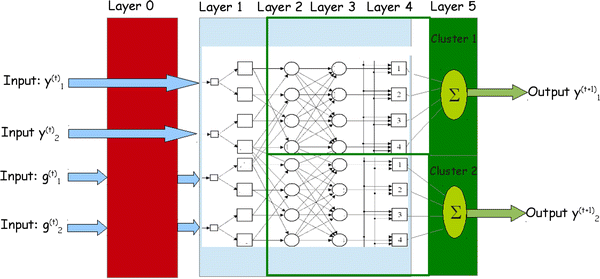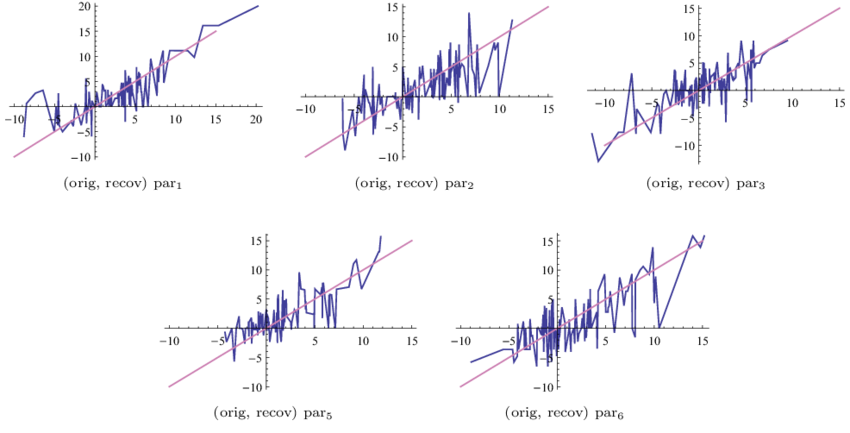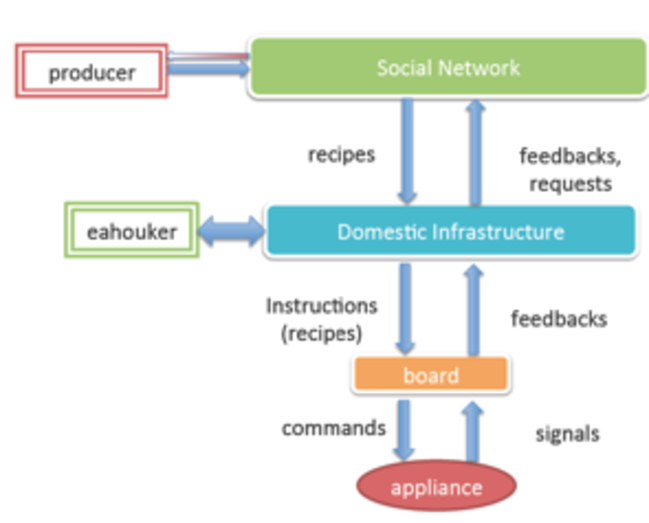Publications
A special thanks to my mentor @Simone Bassis for all the time we spent together and all the research opportunities he gave me.
2016
-
 Learning from NowhereB. Apolloni , S. Bassis , J. Rota , and 3 more authorsAdvances in Neural Networks, 2016
Learning from NowhereB. Apolloni , S. Bassis , J. Rota , and 3 more authorsAdvances in Neural Networks, 2016We extend the Fuzzy Inference System (FIS) paradigm to the case where the universe of discourse is hidden to the learning algorithm. Hence the training set is constituted by a set of fuzzy attributes in whose correspondence some consequents are observed. The scenario is further complicated by the fact that the outputs are evaluated exactly in terms of the same fuzzy sets in a recursive way. The whole works arose from everyday life problems faced by the European Project Social&Smart in the aim of optimally regulating household appliances’ runs. We afford it with a two-phase procedure that is reminiscent of the distal learning in neurocontrol. A web service is available where the reader may check the efficiency of the assessed procedure.
@article{einstein1905molekularkinetischen, title = {Learning from Nowhere}, author = {Apolloni, B. and Bassis, S. and Rota, J. and Galliani, M. and Gioia, L. and Ferrari, L.}, journal = {Advances in Neural Networks}, pages = {97--109}, year = {2016}, } -
 A neurofuzzy algorithm for learning from complex granulesB. Apolloni , S. Bassis , J. Rota , and 3 more authors2016
A neurofuzzy algorithm for learning from complex granulesB. Apolloni , S. Bassis , J. Rota , and 3 more authors2016In the context of complex granule computations within the Interactive Granular Computating (IGC) paradigm we frame a cognitive task where user perceptions of the suitability of a good are in relation to the parameters of the device producing it, all within a learning loop aimed at continuously improving those perceptions. We achieve this goal by extending the Fuzzy Inference System (FIS) paradigm to contexts where variables reckoning the user perceptions live in a non-metric space, hence neither users nor the learning algorithm have access to their true value. Namely, receiving in input a set of both crisp and fuzzy variables (respectively, from the hard_suit and the soft_suit of the c-granule to account for user and device logs), the inference system is asked to compute via the link_suit a set of crisp parameters satisfying some fuzzy evaluations stated by the user. A further complication is that the outputs are evaluated exactly in terms of the true unknown values held by the fuzzy attributes, which in turn must be inferred by the system. The whole work arose from everyday life problems faced by the European Project Social&Smart with the aim of optimally regulating household appliance runs. It represents a special instance of Interactive Rough Granular Computing (IRGC) that we face with a two-phase procedure that is reminiscent of the distal learning in neurocontrol. A web service is available where the reader may check the efficiency of the assessed procedure.
@book{neurofuzzycomplex, title = {A neurofuzzy algorithm for learning from complex granules}, author = {Apolloni, B. and Bassis, S. and Rota, J. and Galliani, M. and Gioia, L. and Ferrari, L.}, year = {2016}, pages = {225--246}, journal = {Granular Computing}, }
2015
-
 Social things: Now we canB. Apolloni , S. Bassis , J. Rota , and 3 more authors2015
Social things: Now we canB. Apolloni , S. Bassis , J. Rota , and 3 more authors2015We instantiate a social things paradigm in terms of a social network of facts which drives our household appliances in our name. The appliances are connected to the network, directly receiving the sequence of instructions (parameter/value pairs) constituting the recipe to perform a task requested by the user. The recipes are issued by the computational intelligence algorithms in the core of the social network. Users, appliances and social network are part of an entire ecosystem that we realized in the frame of the EU project Social&Smart. In this paper we describe the architecture, the information infrastructure and the first achievements of the Social&Smart ecosystem within the general cadre of an Open Internet of Things (Open IoT).
@book{nowwecan, title = {Social things: Now we can}, author = {Apolloni, B. and Bassis, S. and Rota, J. and Galliani, M. and Gioia, L. and Ferrari, L.}, year = {2015}, }